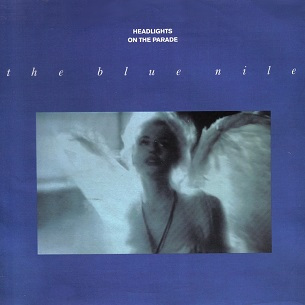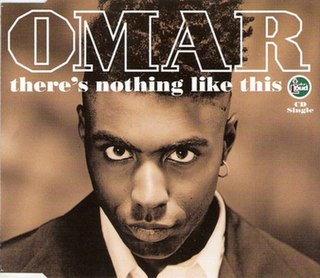
Cracker is an American rock band, formed in 1990 by lead singer David Lowery and guitarist Johnny Hickman. The band's first album Cracker was released in 1992 on Virgin Records; it included the single "Teen Angst ", which went to #1 on the U.S. Modern Rock chart. The band's follow-up, the 1993 album Kerosene Hat included the hit songs "Low", "Get Off This", and "Euro-Trash Girl".

"Get Back" is a song recorded by the English rock band the Beatles and Billy Preston, written by Paul McCartney, and credited to the Lennon–McCartney partnership. It was originally released as a single on 11 April 1969 and credited to "The Beatles with Billy Preston". The song is one of the few examples of John Lennon featuring prominently as lead guitarist. The album version of this song contains a different mix that features a studio chat between Paul McCartney and John Lennon at the beginning, which lasts for 20 seconds before the song begins, also omitting the coda featured in the single version, and with a final dialogue taken from the Beatles' rooftop concert. This version became the closing track of Let It Be (1970), which was released just after the group split up. The single version was later issued on the compilation albums 1967–1970, 20 Greatest Hits, Past Masters, and 1.

Thin Lizzy are an Irish hard rock band formed in Dublin in 1969. Thin Lizzy initially consisted of bass guitarist, lead vocalist and principal songwriter Phil Lynott, drummer Brian Downey, guitarist Eric Bell and organist Eric Wrixon, although Wrixon left after a few months. After Bell left at the end of 1973 the band soon switched to twin lead guitarists: Scott Gorham, who remained with the band until their break-up in 1983, and Brian Robertson, who was replaced in 1978 by Gary Moore. Moore was replaced in turn by Snowy White in 1980, and John Sykes in 1982. The line-up was augmented by keyboardist Darren Wharton in 1980. The singles "Whiskey in the Jar" (1972), "The Boys Are Back in Town" (1976) and "Waiting for an Alibi" (1979) were international hits, and several Thin Lizzy albums reached the top ten in the UK. The band's music reflects a wide range of influences, including blues, soul music, psychedelic rock and traditional Irish folk music, but is generally classified as hard rock or sometimes heavy metal.
"Whiskey in the Jar" is an Irish traditional song set in the southern mountains of Ireland, often with specific mention of counties Cork and Kerry. The song, about a rapparee (highwayman) who is betrayed by his wife or lover, is one of the most widely performed traditional Irish songs and has been recorded by numerous artists since the 1950s.
The Blue Nile were a Scottish band which originated in Glasgow. The group's early music was built heavily on synthesizers and electronic instrumentation and percussion, although later works featured guitar more prominently. Following early championing by established artists such as Rickie Lee Jones and Peter Gabriel, the Blue Nile gained critical acclaim, particularly for its first two albums A Walk Across the Rooftops and Hats, and some commercial success in both the UK and the US, which led to the band working with a wide range of musicians from the late 1980s onwards.

I Mother Earth, or IME, is a Canadian rock band. The band formed in 1990 and reached its peak in popularity in the mid-to-late 1990s. After an eight-year hiatus, the band reunited in 2012. Between 1996 and 2016, I Mother Earth was among the top 150 best-selling Canadian artists in Canada and among the top 40 best-selling Canadian bands in Canada.

"The Safety Dance" is a song by Canadian new wave/synth-pop band Men Without Hats, released in Canada in 1982 as the second single from Rhythm of Youth. The song was written by lead singer Ivan Doroschuk after he had been ejected from a club for pogo dancing.

A Walk Across the Rooftops is the debut album by Scottish band The Blue Nile, released on 30 April 1984 on Linn Records in the UK and on A&M Records in the US. Although the album was released to little fanfare and was not a big hit on its initial release, it slowly accumulated fans and sales through word of mouth as the years passed, and by the time the follow-up Hats was released in 1989, A Walk Across the Rooftops had sold 80,000 copies. It continued to gather praise when reissued in 2012.

Hats is the second studio album by Scottish band The Blue Nile, originally released on 16 October 1989 on Linn Records and A&M Records.

Peace at Last is the third studio album by Scottish band The Blue Nile, released on 10 June 1996 via Warner Bros. Records.

High is the fourth studio album by Scottish band The Blue Nile, released on 30 August 2004 on Sanctuary Records. A single, "I Would Never", was released one week prior to the album: a second song, "She Saw the World", was made available as a promotional single, but never released officially.

"Sleep" is a song by Scottish band Texas, released as the third and final single from their seventh studio album, Red Book (2005), on 9 January 2006. The song features Paul Buchanan from fellow Scottish musical group the Blue Nile. "Sleep" was released on 9 January 2006 in three different formats: two audio CD singles and a DVD single. The song peaked at number six on the UK Singles Chart, and as of 2024, it remains their last UK top-40 hit.
In Tua Nua are an Irish rock band. Their name is a phonetic spelling of the Irish Gaelic An Tuath Nua, meaning "the new tribe."

"Everybody Dance" is a song by American band Chic. The disco song, which features Norma Jean Wright on lead vocals and Luther Vandross, Diva Gray, Robin Clark and David Lasley on background vocals, was released as the second single from the band's self-titled debut album Chic (1977). According to guitarist Nile Rodgers, it was the first song specifically written for Chic, and, due to its historical status and popularity, is usually played as the opening song of the band's live set. It was later heavily sampled by British group Steps on their song "Stomp" and echoed by the Manic Street Preachers on their single "(It's Not War) Just the End of Love".

"Happiness" is a song by Scottish band The Blue Nile, which was released in 1996 as the lead single from their third studio album Peace at Last. It was written by Paul Buchanan and produced by the band. "Happiness" reached No. 88 in the UK Singles Chart and remained in the Top 100 for two weeks.

"What About Us" is a single released by British-Irish girl group The Saturdays. Their first international single, it is the lead single from their first American-only release EP, Chasing the Saturdays (2013). It also acts as the second single from their fourth studio album Living for the Weekend (2013). The single was first released in the United States and Canada on 18 December 2012 via digital download, before being released in the United Kingdom on 16 March 2013 via CD single and digital download. The single was written by Camille Purcell, Ollie Jacobs, Philip Jacobs. There are two different versions of the track which have been recorded and released: a solo version, which was released exclusively in the US and Canada, and a version featuring Jamaican rapper Sean Paul, which was released internationally. Music critics gave the song positive feedback, but questioned the heavily auto-tuned chorus and the move away from the group's traditional sound.

"Tinseltown in the Rain" is a song by Scottish pop band The Blue Nile. It was released as the second single from their 1984 debut album A Walk Across the Rooftops. The song was written and produced by lead singer Paul Buchanan and bassist Robert Bell. It has been described as an "ode to the city" of Glasgow.

"The Downtown Lights" is a song by Scottish band The Blue Nile, released in 1989 as the lead single from their second studio album Hats. It was written by Paul Buchanan and produced by the band.

"Headlights on the Parade" is a song by Scottish band The Blue Nile, released in 1990 as the second single from their second studio album Hats (1989). The song was written by Paul Buchanan and produced by the band. It reached number 72 in the UK Singles Chart and remained in the top 100 for four weeks.

"There's Nothing Like This" is a song by British soul singer and songwriter Omar, initially released by in 1990 as his debut-single. The song is taken from the singer's debut album of the same name (1990), and was re-released in 1991, peaking at number 14 in the UK. Additionally, it peaked at number 13 in Luxembourg, number 27 in Germany, number 34 in Sweden and number 35 in France. The song remains his biggest and most well-known hit to date. A music video was produced to promote the single and has a sepia tone. In 2013, a new version of "There's Nothing Like This" was released, featuring Welsh musician Pino Palladino.

















